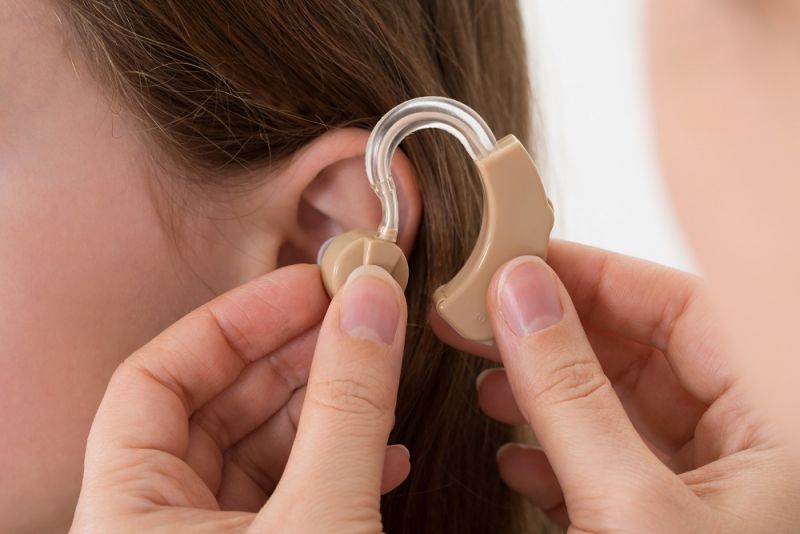Wearing a hearing aid can slow the progress of dementia by up to 75 per cent, according to a new study.
一项新研究指出,佩戴助听器可以使老年痴呆的患病过程最多放慢75%。
Scientists believe that keeping older people engaged and active by adopting the devices can significantly reduce age-related cognitive decline.
科学家们认为,通过使用这种设备让老年人与外界保持联系、时刻处于活跃状态,能够大大延缓与衰老有关的认知退化。
They followed the progress of 2,040 individuals between 1996 and 2014, asking them to complete word memory tests at various stages and monitoring the rate of decline before and after getting a hearing aid.
他们跟踪了2040人在1996年至2014年间的变化,在不同阶段让这些人完成记单词测试,检测受试者佩戴助听器之前和之后认知退化的速度。
The research team found that while the aids did not halt or reverse cognitive decline, they slowed it down by three-quarters, meanwhile in a separate group of 2,068 who underwent cataract surgery, decline slowed by around half.
研究团队发现,尽管助听器没能阻止或逆转认知退化,但它们将这一过程放慢了四分之三。与此同时,另一组2068名接受白内障手术的患者认知退化速度放慢了一半。

The team at the University of Manchester said the strength of the association between hearing aids, cataract surgery and mental deterioration meant policy makers should consider hearing and sight loss screening for all older adults.
英国曼彻斯特大学的研究团队称,助听器、白内障手术与智力退化之间关联如此之强,这意味着决策者应该考虑对所有老年人进行听力和视力筛查。
Dr Piers Dawes said: "These studies underline just how important it is to overcome the barriers which deny people from accessing hearing and visual aids."
皮尔斯·道斯博士表示:“这些研究强调了克服人们在听力和视觉上的障碍对人们来说是多么的重要。”
"It's not really certain why hearing and visual problems have an impact on cognitive decline, but I'd guess that isolation, stigma and the resultant lack of physical activity that are linked to hearing and vision problems might have something to do with it.
“为什么听力和视力问题对认知衰退有影响,答案并不确定,但我猜测听力和视力问题可能带来孤立感和难堪,而人的身体活动水平也随之大幅下降,这些因素可能起到了作用。”
"And there are barriers to overcome -- people might not want to wear hearing aids because of stigma attached to wearing them, or they feel the amplification is not good enough or they're not comfortable."
“我们需要克服一些障碍--人们可能不愿意佩戴助听器,因为那会使他们感到难堪,或者他们感觉声音放大的效果不好,或者让他们感到不舒服。”












